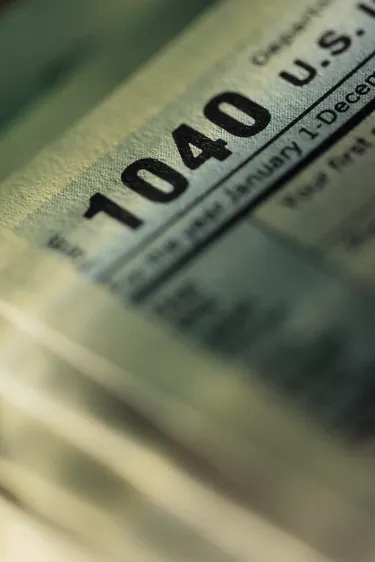
Helping your child prepare for the future means teaching them about earning their keep and saving for future goals. Aside from you doing it all, minors can earn income in one of two ways: 1) a part-time job or 2) earnings on savings and investment accounts. Although this is their income, they don't always file taxes. How you claim income for your child will depend on how much they make and their age.
Filing on Your Return
Video of the Day
Children under 18 who earn less than $9,000, according to IRS 2010 tax rates, may include income on their parent's tax return. Parents must gather all the earnings, interest and capital gains from employment, savings accounts and investment accounts to determine if the aggregate value is less than this threshold. If it does, when filing your 1040, you will include Form 8615 that accounts for the income on the minor's Social Security number. The concern with filing your child's income on your return is that you are probably at a higher tax bracket than your child. The money can be taxed as high as 35% even though earning less than $8,500 would generally mean a 0% tax bracket for most tax payers. For parents who are divorced or filing taxes separately, you must file the child's income with the parent who has the higher adjusted gross income.
Video of the Day
Minor Tax Returns
If your child earned less than $9,000 in the year from a summer job, part-time income and college savings investments, then they can still file for their own return. They would use Form 8814 to account for minor income but be treated at a lower tax bracket appropriate for their actual income. If the minor earned more than $9,000, they can file a 1040EZ. When minors file their own taxes, they are still considered a dependent and able to be claimed. Minors with divorced parents who have separate savings and investment accounts find this is a good method to properly account for all income in one return. Minors are able to take deductions such as charitable contributions on their own return.